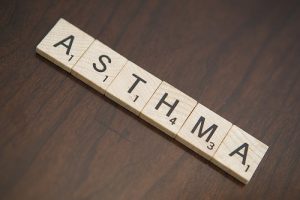
By: Michael Havens
What is Asthma?
Asthma is a condition in which your airways narrow and swell and produce extra mucus. This can make breathing difficult and trigger coughing, wheezing and shortness of breath.
Asthma is the most common chronic condition affecting pediatric patients. In the United States asthma is a leading cause of hospitalizations, emergency department visits and missed days of school. Asthma that is diagnosed before the age of 5 is strongly linked to heredity, but also can be caused by air pollution, immune sensitivity, nutrition and obesity.
What are the Symptoms of Asthma?
- Shortness of breath
- Chest tightness or pain
- Trouble sleeping caused by shortness of breath, coughing or wheezing
- A whistling or wheezing sound when exhaling (wheezing is a common sign of asthma in children)
- Coughing or wheezing attacks that are worsened by a respiratory virus, such as a cold or the flu
What triggers Asthma Attacks?
- allergens like pollen, mold, and pet dander
- dirty air (irritants or pollutants)
- respiratory infections, like a cold or the flu
- weather conditions
- exercise
- Acid reflux (GERD)
What is an asthma attack?
MYTH: My child can outgrow their asthma.
FACT: Once diagnosed with asthma, the condition is lifelong.
MYTH: If my child has asthma that means they can’t be physically active or play sports.
FACT: Physical inactivity increases the severity of asthma symptoms, and frequency of asthma attacks. Exercising regularly is actually one of best things that your child can do to keep your lungs and body healthy. Increased physical activity can reduce obesity, asthmatic symptoms, as well as improve quality of life into adulthood.
What should parents know if their child has asthma and is overweight?
Children with obesity are at an even greater risk of developing asthma. In the United States 75% of the children that end up in the emergency room for treatment of an asthma attack are considered to be overweight or obese. Pediatric asthma and obesity can be managed by increasing your child’s daily physical activity, monitoring nutrition, and weight loss, which are clinical proven to improve quality of life and lung function.
My child doesn’t like sports, what kind of physical activity can my child do that will improve their asthma?
Yoga has been a widely used treatment for asthma as it has shown to reduce the use of rescue inhalers, improve stamina for exercise and improves lung function.
References
Haines, M. S., & Kim, D. H. (2013). A Study of the Effects of Physical Activity on Asthmatic Symptoms and Obesity Risk in Elementary School-Aged Children. American Journal Of Health Education, 44(3), 156-161.
Tahan, F., Eke Gungor, H., & Bicici, E. (2014). Is Yoga Training beneficial for Exercise-induced Bronchoconstriction?. Alternative Therapies In Health & Medicine, 20(2), 18-23.
Lang, J. E. (2012). Obesity, Nutrition, and Asthma in Children. Pediatric Allergy, Immunology & Pulmonology, 25(2), 64-75.
